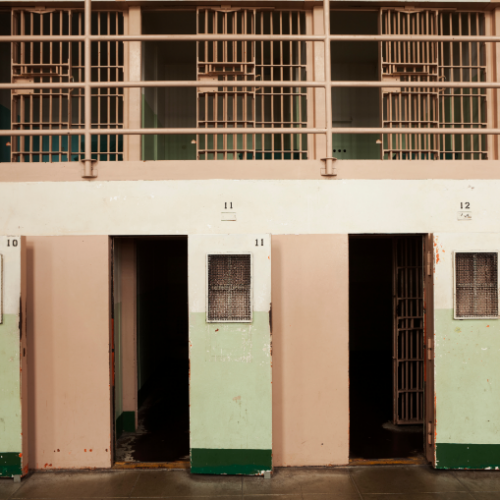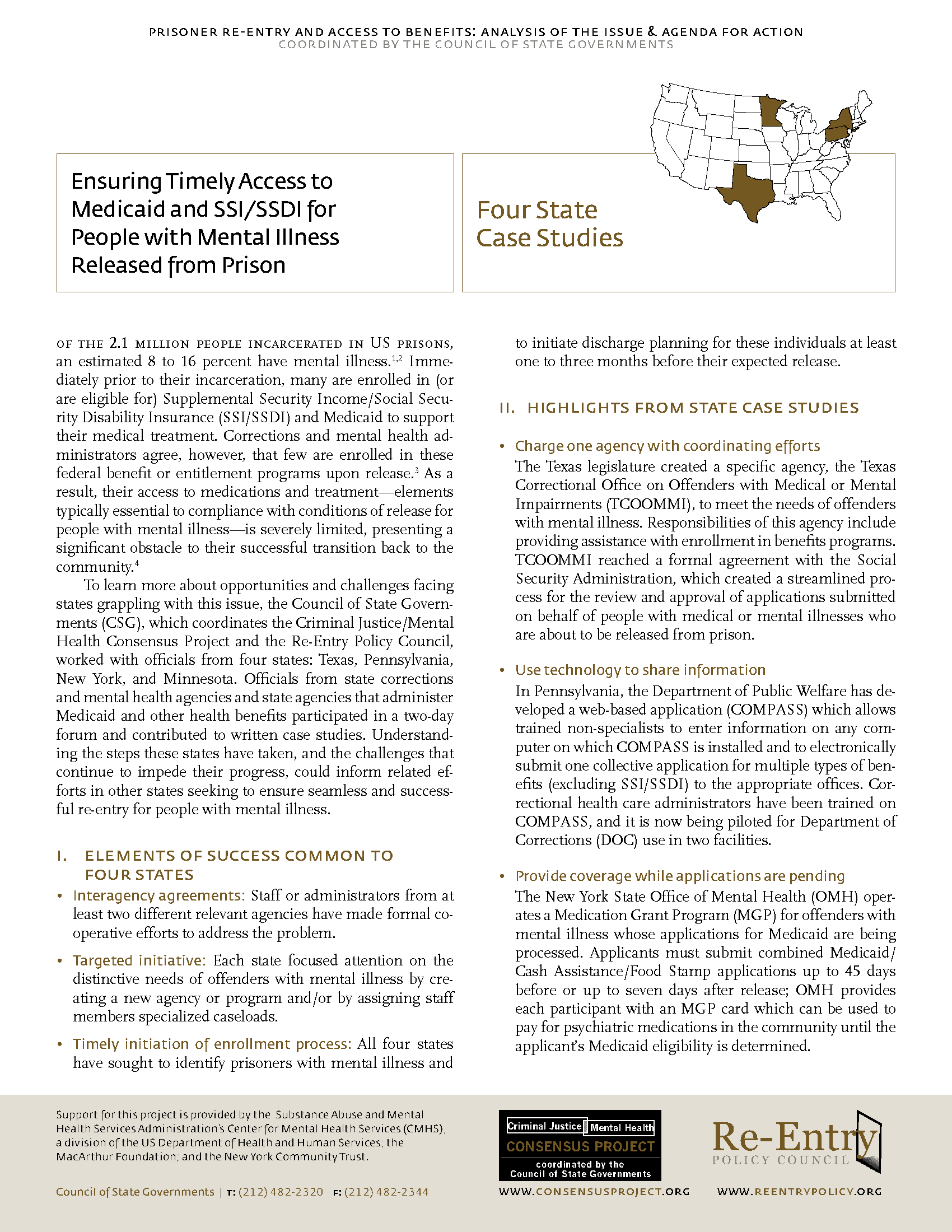Ensuring Timely Access to Medicaid and SSI/SSDI for People with Mental Illness Released from Prison: Four Case Studies
This fact sheet from the Council of State Governments Criminal Justice/Mental Health Consensus Project, in conjunction with the Re-Entry Policy Council, provides an analysis of case studies from four states, identifying common elements of success, highlights from each state, and continuing challenges to state efforts.
Among people in prison with mental illnesses, many are enrolled in (or are eligible for) Supplemental Security Income/Social Security Disability Insurance (SSI/SSDI) and Medicaid to support their medical treatment prior to incarceration, but few are enrolled in these federal benefit or entitlement programs upon release. As a result, their access to medications and treatment—elements typically essential to compliance with conditions of release for people with mental illness—is severely limited, presenting a significant obstacle to their successful transition back to the community.
A positive school experience, where a child feels secure, is essential for their well-being. However, for many children…
Read More The Path to Statewide Community Crisis Response in New Jersey: A Community Advocate’s Perspective
Read More
The Path to Statewide Community Crisis Response in New Jersey: A Community Advocate’s Perspective
Read More
 Supporting Children of Incarcerated Parents: Reimagining School and Community Collaboration
Supporting Children of Incarcerated Parents: Reimagining School and Community Collaboration
A positive school experience, where a child feels secure, is essential for their well-being. However, for many children with incarcerated parents—one in 14 in the U.S.—school can feel far from safe due to stigma, trauma, and a lack of understanding.
Read More Bridging Communities and Correctional Systems: Q&A with CSG Justice Center Advisory Board Member Commissioner Nicholas Deml
Read More
Bridging Communities and Correctional Systems: Q&A with CSG Justice Center Advisory Board Member Commissioner Nicholas Deml
Read More
 Assigned to the Cloud Crew: The National Incarceration Association’s Hybrid Case Management for People with Behavioral Health Needs
Assigned to the Cloud Crew: The National Incarceration Association’s Hybrid Case Management for People with Behavioral Health Needs
When returning to their communities from criminal justice settings, people with behavioral health needs face barriers in accessing basic needs—including food, housing, employment, transportation, education, clothing, and substance use and mental health services—which increases their risk of experiencing a crisis.
Read More Meet the Medicaid and Corrections Policy Academy Mentor States
Meet the Medicaid and Corrections Policy Academy Mentor States
New Hampshire Department of Corrections Commissioner Helen Hanks presents at the Medicaid and Corrections Policy Academy in-person meeting.
Read More











